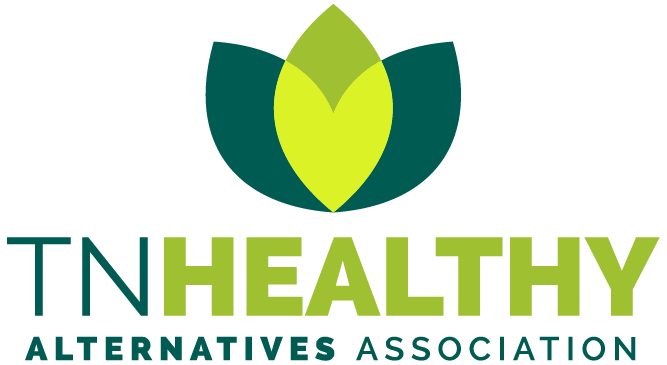Navigating Emergency Regulations: The TNHAA Blueprint for Small Hemp Businesses

Tennessee's small hemp businesses face a critical moment. The emergency rules drafted under Senate Bill 0378 (SB 0378) threaten to disrupt their operations, potentially causing significant harm. This situation demands urgent attention from business owners, consumers, and experts alike. In this blog post, we explore the implications of these rules, the Tennessee Healthy Alternatives Association's (TNHAA) response, and what lies ahead for Tennessee's hemp industry. Join us as we unravel this complex issue and consider how we can collectively work towards a more favorable outcome for all stakeholders involved.
Understanding the Implications of SB 0378
Senate Bill 0378 was initially crafted with the intent to provide small Tennessee hemp businesses a clear regulatory roadmap. The framework aimed to support these local enterprises while ensuring consumer welfare. By setting guidelines, SB 0378 aspired to foster innovation, attract investment, and ultimately enhance Tennessee's economy.
At its core, SB 0378 intended to create an environment where small businesses could thrive without the burden of overly restrictive policies. The bill's focus on consumer protection was designed to establish trust and safety within the hemp market, encouraging responsible practices. Furthermore, SB 0378 sought to position Tennessee as a leader in the hemp industry by promoting sustainable and ethical business operations.
However, the recent emergency rules appear to steer away from these foundational principles. It's crucial to revisit the original goals of SB 0378 to understand how the current regulatory environment has shifted and what that means for small hemp businesses across Tennessee.
The Emergency Rules A Closer Look
The emergency rules introduced under SB 0378 have sparked significant concern among stakeholders in Tennessee's hemp industry. These regulations, hastily drafted to meet statutory deadlines, seem to surpass the original intent of the bill. Instead of fostering growth and protecting consumers, these rules pose challenges that could stifle small businesses.
One major deviation is the increased complexity of compliance requirements. Small businesses, often limited in resources, now face additional administrative burdens that could strain their operations. This complexity not only increases costs but also diverts attention from business development and innovation.
Furthermore, the emergency rules expand the scope of regulation beyond what was initially envisioned. Such expansion creates uncertainty, undermining the stability that the original SB 0378 sought to provide. By imposing constraints that are arguably excessive, these rules threaten the vitality of Tennessee's hemp market, jeopardizing future growth and investment.
TNHAA’s Response and Public Comments
In response to the emergency rules, the Tennessee Healthy Alternatives Association (TNHAA) has taken decisive action. Recognizing the potential damage these regulations could cause, TNHAA has mobilized to submit public comments opposing the rules. Their advocacy reflects a commitment to preserving the integrity and viability of Tennessee's hemp industry.
TNHAA's public comments articulate their concerns regarding the emergency rules, highlighting how they diverge from the intended purpose of SB 0378. By engaging directly with regulatory bodies, TNHAA aims to halt the implementation of rules that could adversely affect small businesses and the wider community.
Furthermore, TNHAA's proactive stance serves as a rallying point for stakeholders who share similar apprehensions. Their efforts emphasize the importance of collaboration and collective action in responding to regulatory challenges. In doing so, TNHAA sets a precedent for how industry associations can effectively advocate for their members' interests.
The Future of Tennessee’s Hemp Industry
If the emergency rules remain unchanged, the future of Tennessee's hemp industry could be at risk. Small businesses, already operating on tight margins, may face insurmountable challenges that threaten their survival. The long-term impact on the state's economy could be profound, as these enterprises play a pivotal role in local job creation and economic activity.
Consumers, too, would feel the effects. Reduced competition and innovation could limit product choices and drive up prices, undermining consumer welfare. The stringent regulations might also deter new entrants, stifling diversity and creativity within the market.
For the state's economy, the consequences could extend beyond the hemp sector. A weakened industry may lead to a decline in investment and a loss of revenue opportunities. This potential downturn underscores the need for thoughtful, balanced regulations that align with the original vision of SB 0378—supporting growth while safeguarding consumer interests.
Exploring Legal and Regulatory Solutions
In light of these challenges, it's crucial to explore legal and regulatory solutions that can restore balance to Tennessee's hemp industry. TNHAA and other stakeholders have several avenues to pursue in advocating for fairer regulations that align with SB 0378's intent.
Firstly, engaging with legislators to communicate the industry's concerns is paramount. By educating decision-makers about the practical implications of the emergency rules, stakeholders can influence future legislative and regulatory decisions. Dialogue and collaboration can lead to more informed policy-making that reflects the realities of the hemp market.
Additionally, legal challenges may serve as a means to contest the validity and appropriateness of the emergency rules. By questioning the legality of these measures, stakeholders can seek judicial intervention to ensure regulations are enacted within the bounds of the law and SB 0378's framework.
Finally, continued advocacy and public engagement will be crucial in shaping the future regulatory landscape. By fostering awareness and building alliances, stakeholders can strengthen their collective voice and push for changes that promote a healthy, sustainable hemp industry in Tennessee.
Call to Action
The time to act is now. The Tennessee hemp community must unite in support of TNHAA and other organizations striving to protect the interests of small businesses. By engaging with legislators, voicing concerns, and staying informed, stakeholders can contribute to a more equitable regulatory environment.
Your involvement matters. By joining forces, we can advocate for regulations that reflect the true spirit of SB 0378—supporting growth, innovation, and consumer welfare. Together, we can work towards solutions that benefit the entire Tennessee hemp industry and ensure its continued success.
Conclusion
Navigating the complexities of emergency regulations is no small feat, but the resolve and unity of Tennessee's hemp community offer hope for a positive outcome. By understanding the original intent of SB 0378, the challenges posed by the emergency rules, and the advocacy efforts of TNHAA, stakeholders can better prepare for the road ahead.
The future of Tennessee's hemp industry depends on informed, collaborative action. By supporting initiatives that prioritize fair and balanced regulations, we can safeguard the interests of small businesses, consumers, and the state's economy. Let's work together to create a regulatory environment that fosters growth, innovation, and prosperity for all.
For those interested in exploring further, consider reaching out to TNHAA or joining local advocacy groups. Your voice can make a difference in shaping the future of Tennessee's hemp industry.

